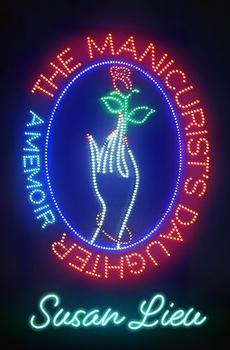Book Club Discussion Questions
Want to participate in our book club? Join BookBrowse and get free books to discuss!
Please be aware that this discussion guide will contain spoilers!
-
As Susan learns more about her mother's past, she states, "I always knew Má was my hero; I just didn't realize she was everyone else's too." In what ways was Má heroic? Do you admire any of the other people in Susan's life? Why?
-
Susan goes by a number of names throughout her life: Suzen, Xuân An, Liễu Huệ Xuân.…How do these names help her establish her identity and self-image? How does your name or nickname relate to who you are?
-
Do you agree with Susan's mantra When we feel, we heal? Have you ever seen it play out in your own life?
-
Susan writes: "At the shop, we labored hand and foot, serving Americans. And tonight, even if it was just for two hours, we weren't the servers, we were the served." How does this memory exemplify the American Dream for Susan's family? What other moments in the book hold that same feeling?
-
After her mom's death, Susan shares that her family "pretended everything was normal" even though they were "emotionally bankrupt." Where does she look for emotional support outside her family? Which of those avenues seemed the most helpful? Where do you look for support during difficult times?
-
What factors played into Má's decision to get plastic surgery? Were those same factors present in Susan's life? Why or why not?
-
Susan's arts career gained momentum with her successful performances of 140 LBS: How Beauty Killed My Mother. What changes came from Susan's decision to share her family story on stage? Where do you think the line between privacy and the public should be drawn when it comes to sharing family history?
-
In part IV, Susan explores her mother's refugee journey for the first time. Was her mother's past what you expected it to be? Did you learn anything new about Vietnamese history or culture when reading about her family's refugee experience?
-
As a child, Susan vowed to never go back to Việt Nam, but she has visited multiple times as an adult. What led to this change in attitude? Has your attitude toward your family's past changed from childhood to adulthood?
-
How does Susan's spiritual journey coincide with her relationship with her family? How essential is your spiritual life to emotional healing?
-
In part IV, Susan reflects, "All this time, I had invested so much energy in knowing a dead parent when I knew so little about the living one right in front of me." How does reconnecting with Ba change her, especially as she becomes a mother? Does this relationship inspire you to reconnect with someone important in your life?
-
Susan describes food as a way to connect with loved ones. Food also has negative connotations in the book when it comes to body image and her mother's death. Discuss this complicated relationship with food and what lessons can be learned from it.
-
How did you feel knowing that the doctor who performed the surgery on Má never faced consequences for his malpractice? Did you wish things had gone differently when Susan was searching for justice?
-
While looking through her father's photo albums, Susan discovers postcards, photos, cards, and notes that contradicted what she remembered about her father's supporting her dreams. She asks, "How did I come to distort my narrative over the years that I was so unloved?" Have you ever caught yourself misremembering the past?
-
Though they had the same parents and grew up in the same household, Susan's siblings' lives and attitudes vary greatly. How would this memoir look if it were told by one of her siblings? If you have siblings, how do you think they would tell your family story differently than you would?
-
From the prologue, where the women in the waiting room commiserate and sit together, Susan emphasizes the female relationships in her life. How are these relationships special to her? What relationships with women are important in your life?
-
Má experienced trauma from fleeing Việt Nam. Susan experienced trauma from losing her mother at a young age. What were the ripple effects that these events had on their lives?
For the full book club kit please refer to the
publisher's page.
Unless otherwise stated, this discussion guide is reprinted with the permission of Celadon. Any page references refer to a USA edition of the book, usually the trade paperback version, and may vary in other editions.




